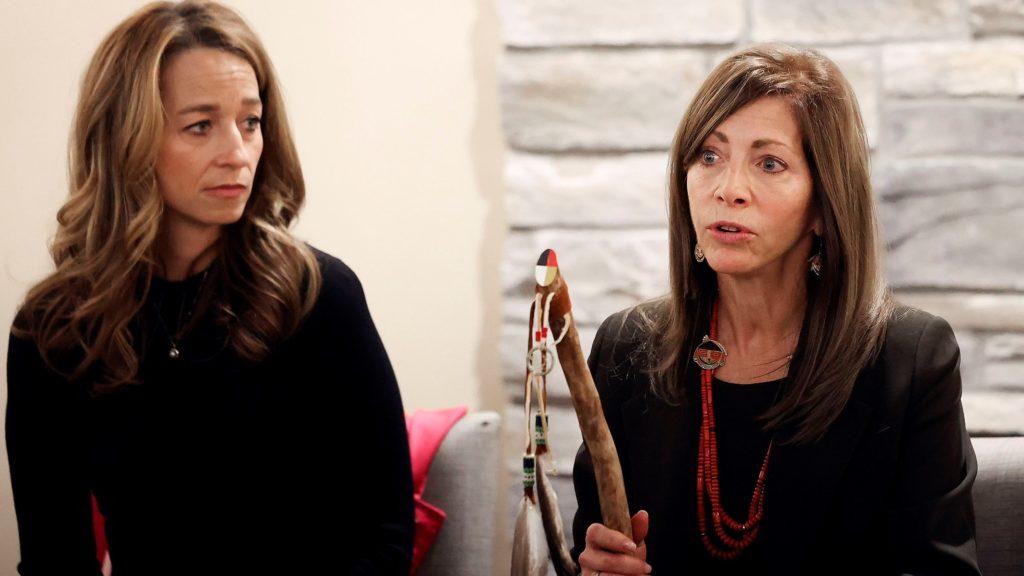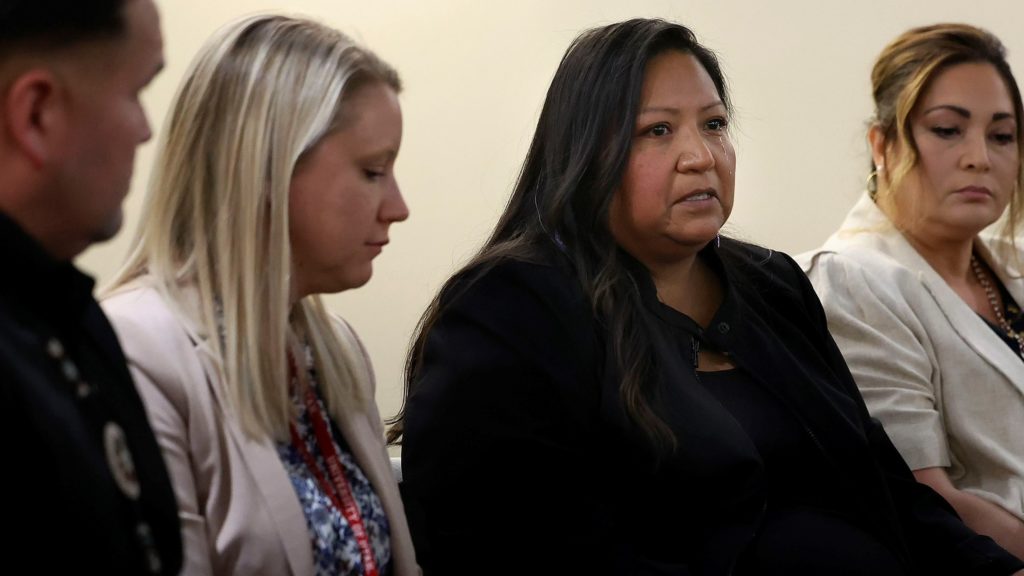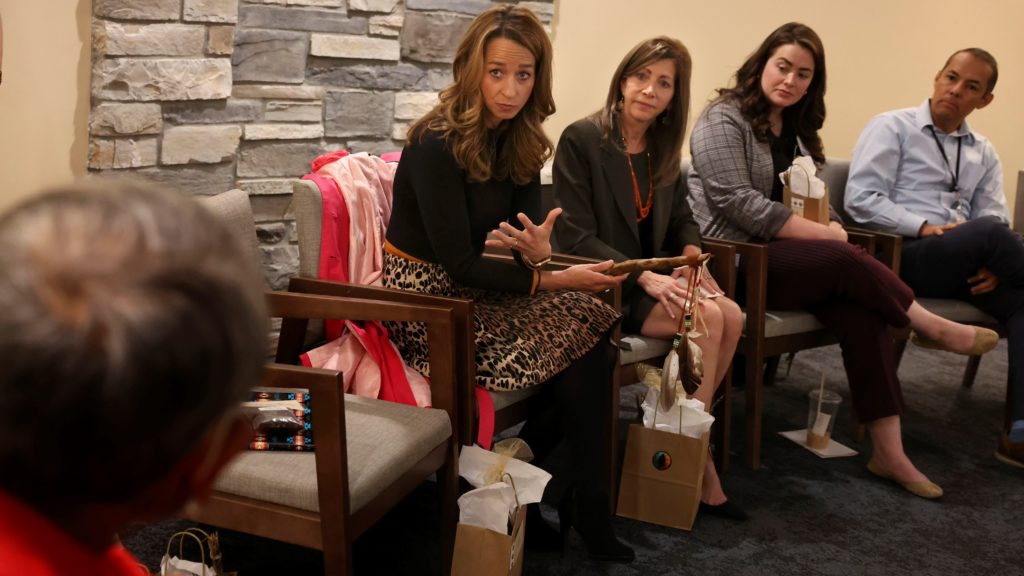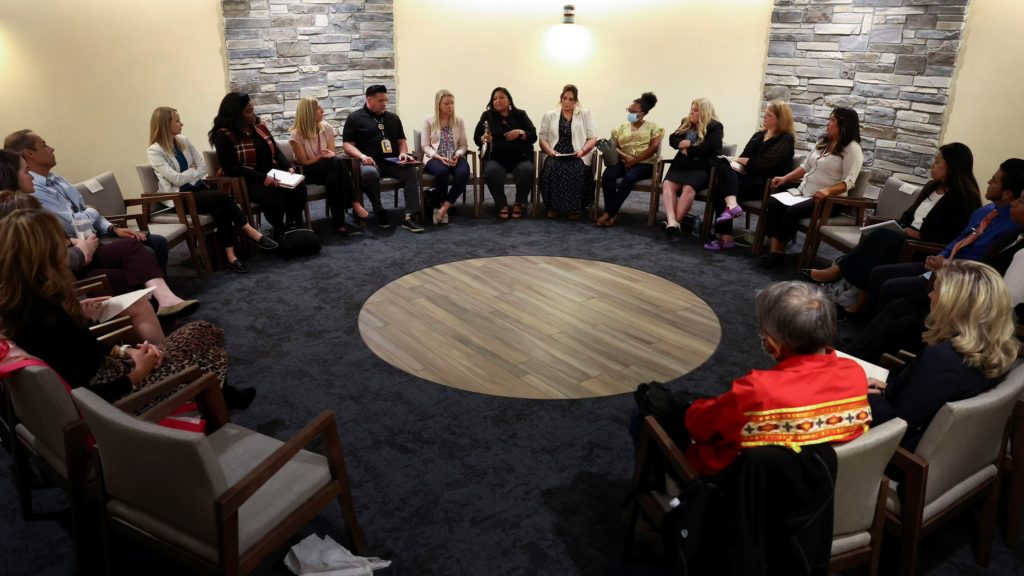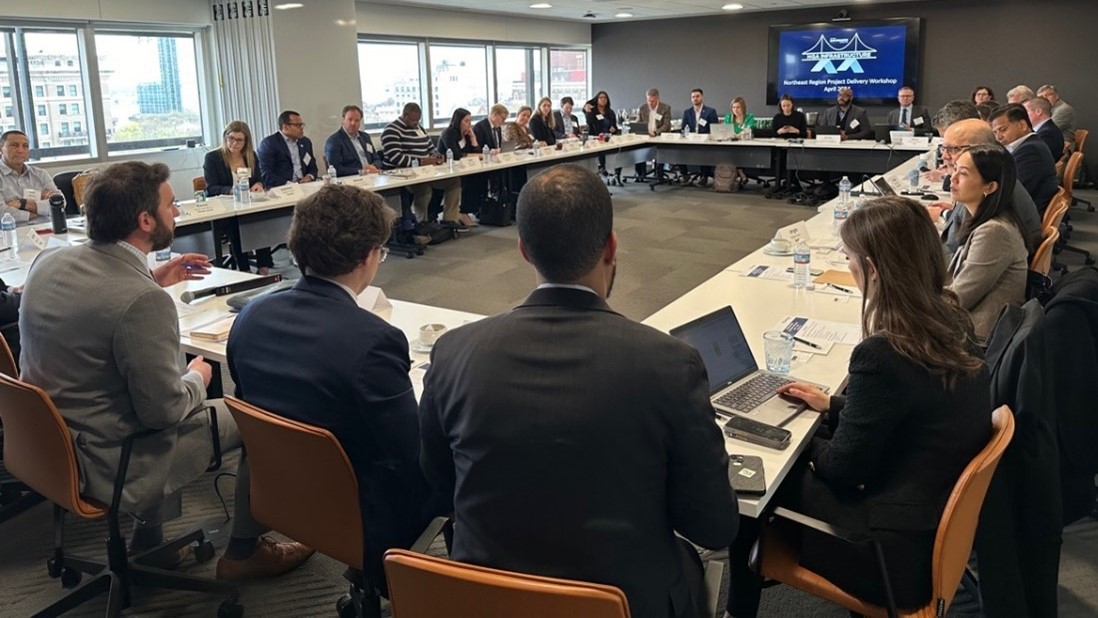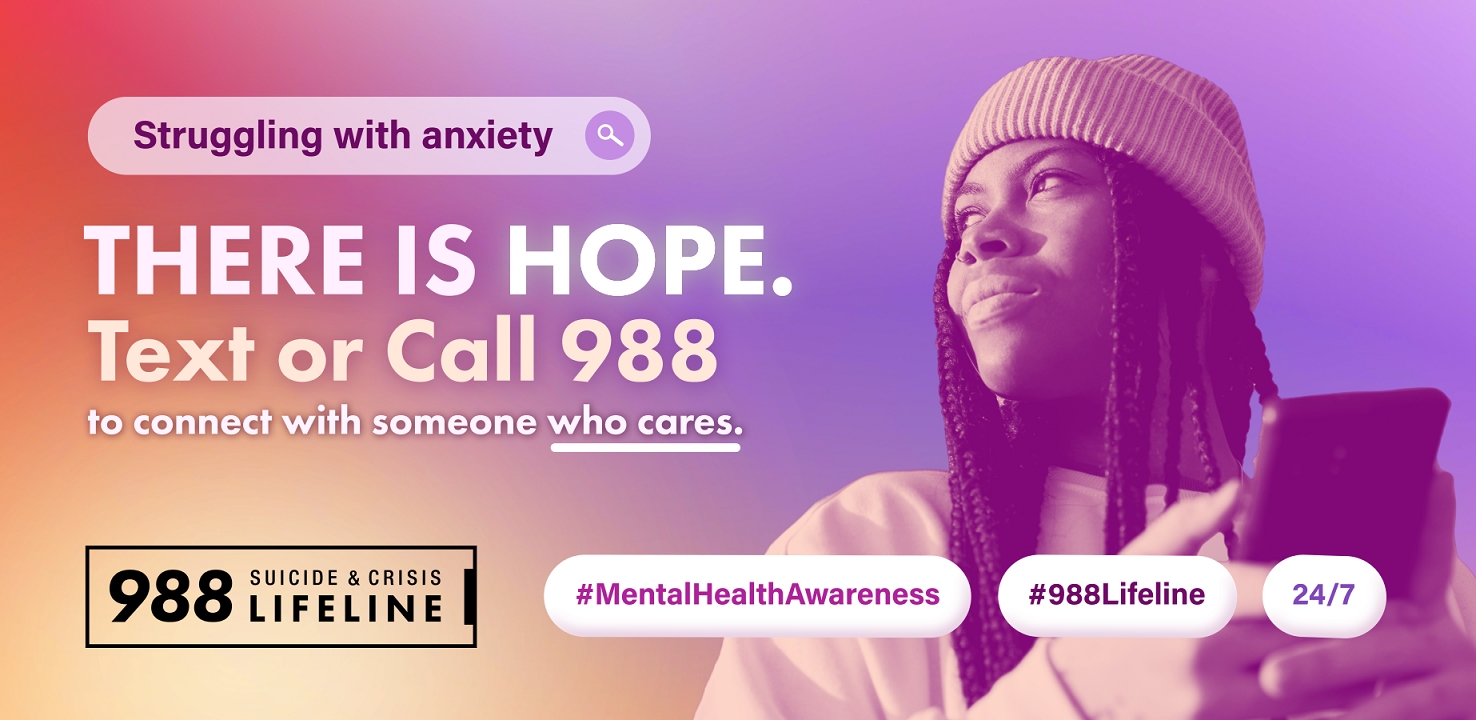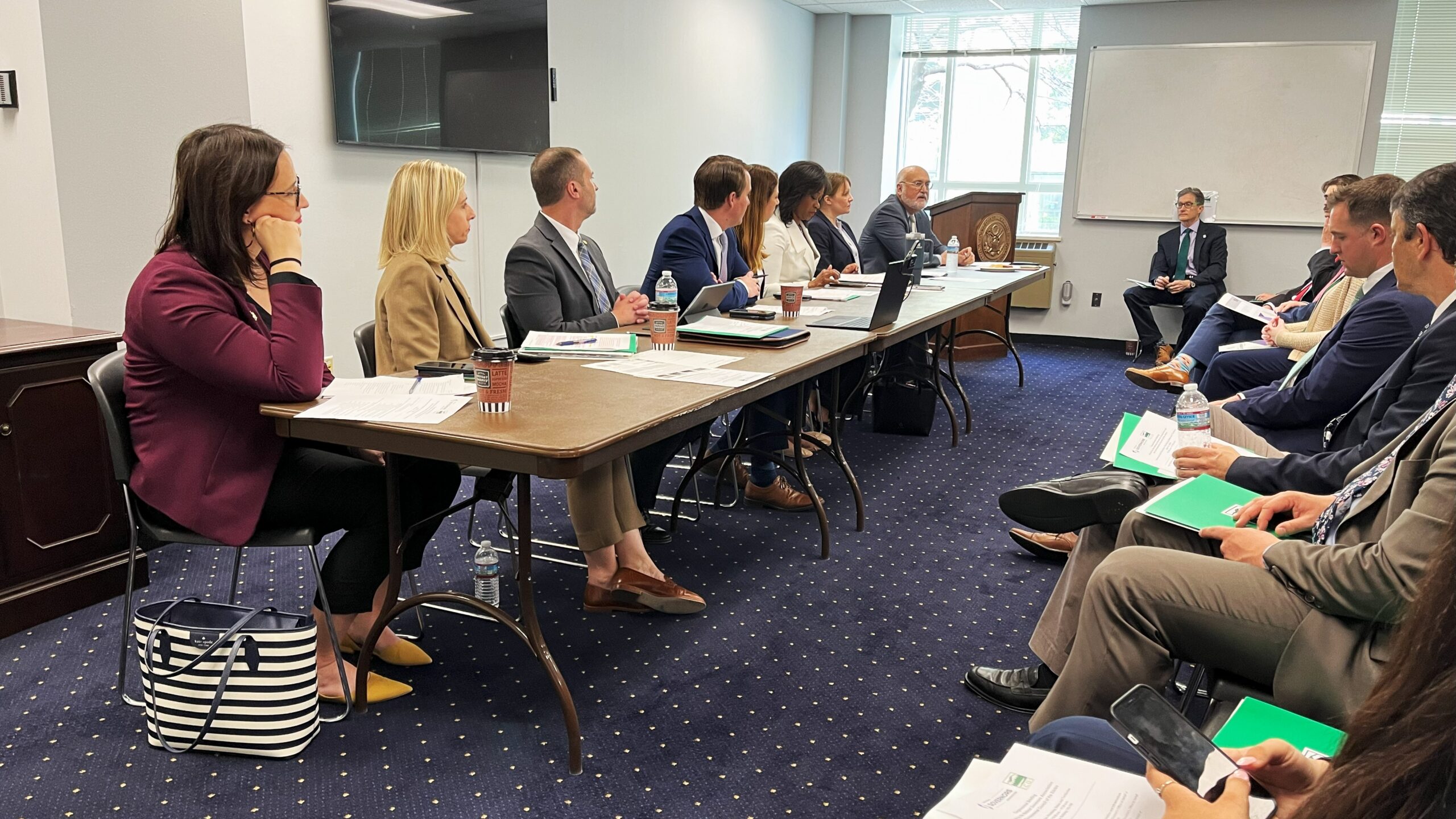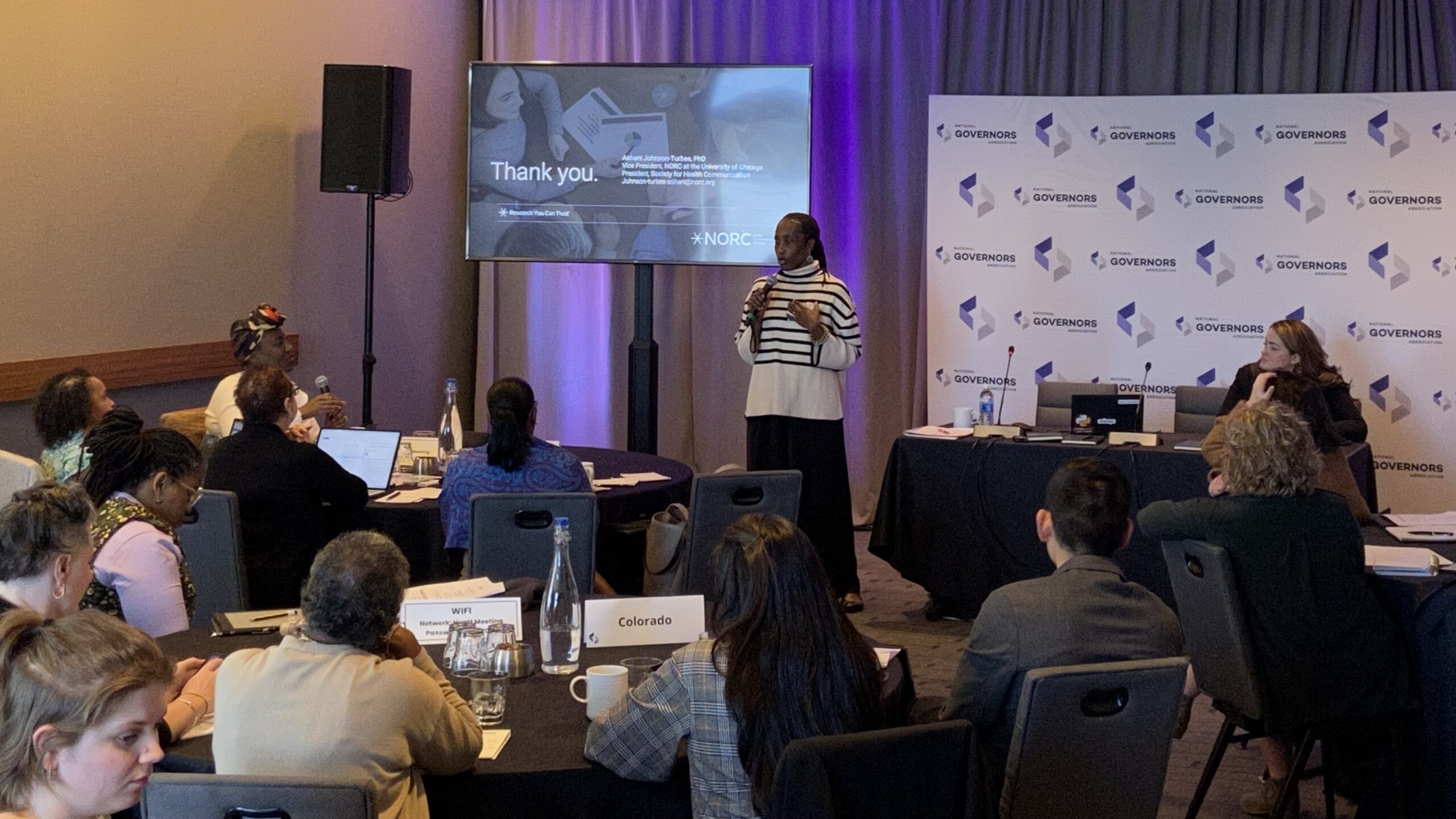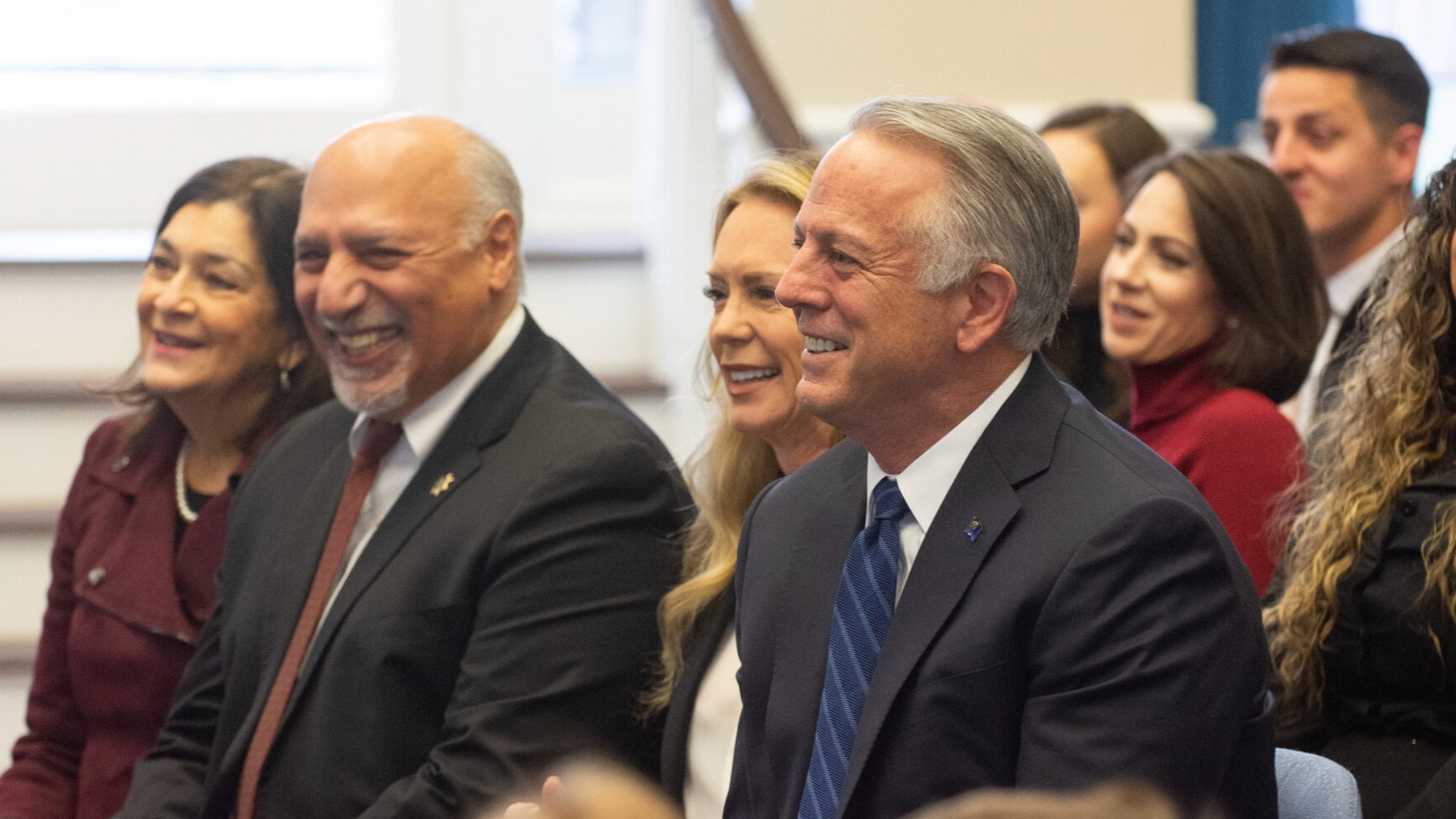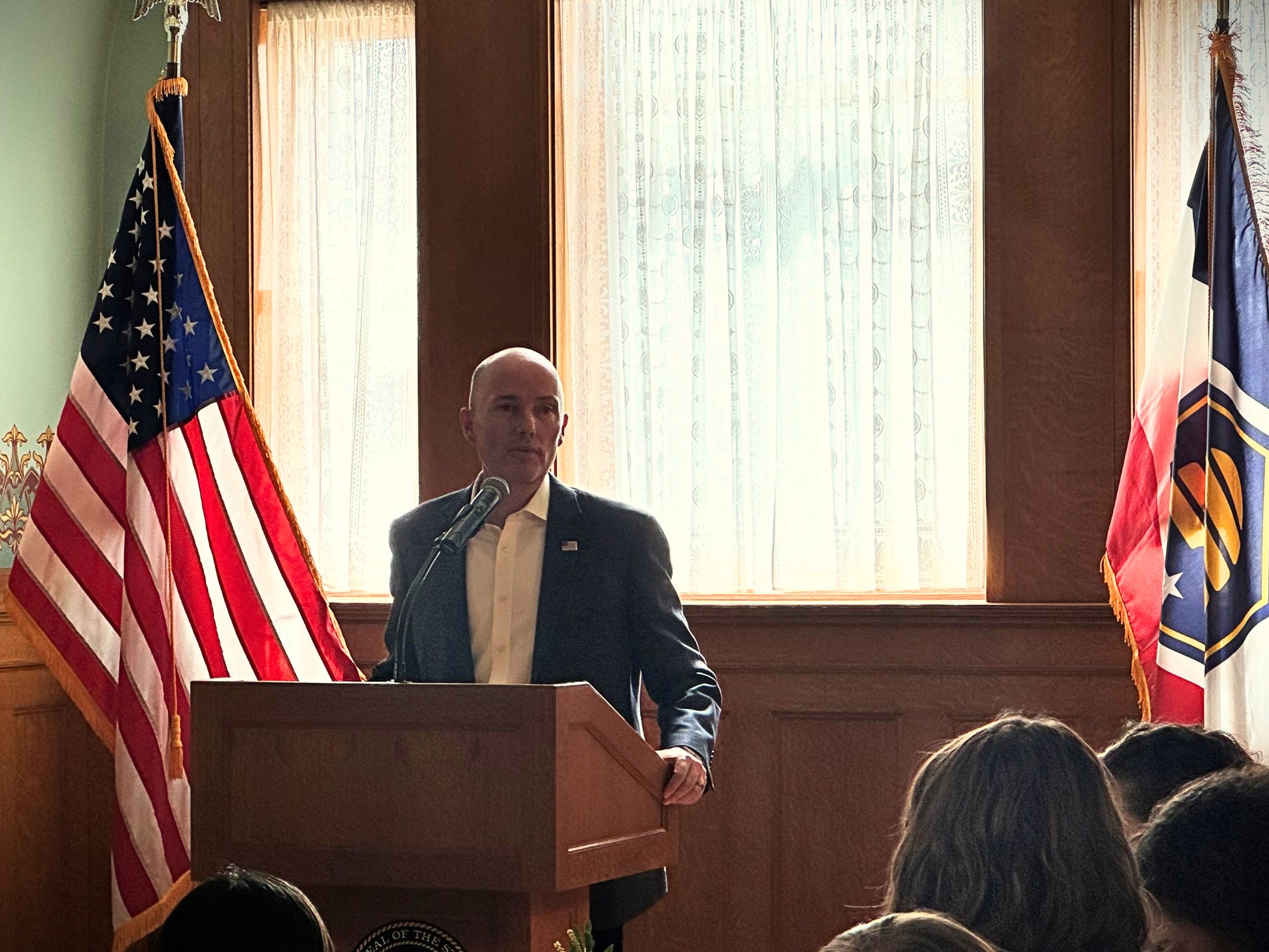New Jersey First Lady Tammy Snyder Murphy is spearheading an Initiative on maternal and infant health (MIH), expanding her Nurture NJ work to the country.

In July 2022, New Jersey Governor Phil Murphy was named the National Governors Association (NGA) Chair. The role allows Governor Murphy to leverage NGA’s convening power and expertise on a specific policy topic over the next year. Given the alarming rise in mental health hospitalizations and suicides among America’s youth, Governor Murphy chose to address youth mental health as his NGA Chair’s Initiative. In addition, New Jersey’s First Lady Tammy Snyder Murphy is also spearheading her own NGA Initiative on maternal and infant health (MIH), expanding her Nurture NJ work to the country. The four pillars of her policy focus are:
- Centering women’s voices,
- Improving and utilizing maternal and infant health data,
- Expanding access and quality of care and
- Elevating innovative MIH polices, programs and technologies

Over the next year, Governor Murphy and First Lady Murphy will convene Governors, First Spouses, Governor’s health and human services advisors, policy experts, individuals with lived experience, industry leaders and other key stakeholders to discuss these issues in a series of roundtables. The first roundtable was held in mid-October and hosted by NGA Vice Chair Utah Governor Spencer Cox and First Lady Abby Cox in Salt Lake City, Utah. The meeting focused on youth mental health, in addition to First Lady Murphy’s first pillar: centering women’s voices.
Centering women’s voices in the policy making process is key to addressing the MIH crisis. In the United States, MIH disparities are tied to systems and policies that have historically overlooked women’s voices, especially Black, Indigenous and Latina women. Because women from these communities are not often listened to, birth outcomes among both babies and mothers are disproportionately worse than White peers. Black and Indigenous women are three times more likely to die from pregnancy-related complications than White women. Additionally, maternal mortality among Hispanic women increased by 44 percent between 2019 and 2020 compared to a seven percent increase for White, non-Hispanic women. Outcomes are worsening, and the deaths or severe complications faced by women are preventable 80 percent of the time. First Lady Murphy is committed to working with policymakers and experts in this space to address these disparities at the root, starting with elevating women’s voices and implementing solutions in partnership with those most disproportionately affected.
The above statistics represent a system that has stifled women’s concerns and pain during a physically and emotionally arduous time. The numbers also represent women with joy and hope for their next chapter that is tempered with fear. As Brittany Wright shared in her personal story, “We walk into what’s supposed to be the happiest moment of our life, with the trepidation, and [the] reality that our families could be left planning funerals instead of birthday parties.”

Ms. Wright eloquently opened the MIH discussion by sharing her experience and recommendations with those at the roundtable. She is the Program Manager for Minnesota Governor Walz Children’s Cabinet, host of Trill Moms podcast and the President and Founder of Gray Matter, an organization providing social and political engagement to strengthen Black families and eradicate disparities. Ms. Wright graciously shared her birthing experience – one where her pain was ignored and concerns were dismissed. Her birth qualified as a maternal near miss, resulting in complications that almost cost her life because her voice was disregarded. To compliment her story, Ms. Wright also shared tenants of a framework for Holistic Maternal Care she formed as part of the Trill Moms initiative. This framework, among other things, includes recommendations to listen to Black women, acknowledge historical trauma of communities and one’s own biases and empower patients through informed consent and access to quality care.

Following Ms. Wright’s personal story, First Lady Murphy and a panel of MIH providers and advocates, including Dr. Deanna Wathington, Nicolle Gonzales, Dr. Natalie Hernandez and Megan Simmons continued the discussion. They discussed defining respectful care, meaningfully engaging communities and traditional provider types and addressing sustainable funding. Ms. Gonzales, Founder and Midwifery Director for Changing Women Initiative, encouraged leaders to hold conversations with their partners, define a meaningful partnership and act on it consistently. Dr. Hernandez, Executive Director for the Center for Maternal Health Equity at the Morehouse School of Medicine, shared insights from her work collecting lived experience stories as qualitative data to further inform policies. Dr. Wathington, Medical Director at Volusia Volunteers in Medicine Clinic and Executive Director of the Consortium of African American Public Health Programs, shared her experience training physicians to listen to their patients through a commonly repeated phrase, “from ears to action.” She also spoke to the way generational trauma and maternal weathering affects pregnant women and their babies. Ms. Simmons, Director of Policy at the National Birth Equity Collaborative, shared specifics of her organization’s Respectful Maternity Care Model, which incorporates ongoing implicit bias training and discussed the importance of policies like the Black Maternal Health Momnibus Act that exemplifies how states can create their own Mommnibus legislation.

Jacquelyn Caglia, Associate Director of Projects at Merck for Mothers, led a roundtable discussion for participants to react to and ask questions of the panel. The roundtable discussion was multifaceted, touching on topics from provider training and reimbursement to pregnancy and postpartum care for women in the criminal justice system. Ms. Caglia wrapped up the varied, complex conversation by bringing it back to the key focus: centering women’s voices. In her closing she stated the need to “shift power to the people most proximate to the problem.”
The following day began with a visit to a local clinic, Sacred Circle Health Care, owned and operated by the Confederated Tribe of the Goshute Reservation (CTGR) of the Goshute Nation. Sacred Circle operates four clinics strategically placed to reach people where they are and offers a holistic care model with a variety of co-located services.
First Lady Murphy, First Lady Cox, the MIH panelists and NGA met with Sacred Circle and Urban Indian Center of Salt Lake providers and CTGR Chairman, Rupert Steele, to discuss their care model, successes and ongoing challenges. Sacred Circle Executive Officer Lorena Horse and providers talked through strategies to improve Medicaid reimbursement, reduce burdensome grant-writing processes and reimagine health care delivery for the whole family. This visit was the first of many meetings to hear from the community to inform policy recommendations to be outlined in a roadmap for Governors that will be released at the end of Governor Murphy’s Chairmanship.
By actively centering women’s voices, Governors and state leaders can work to reduce disparities in MIH outcomes and make their states safer places for pregnant women, babies, mothers and families.
